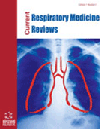-
s Neurally Adjusted Ventilatory Assist - NAVA
- Source: Current Respiratory Medicine Reviews, Volume 8, Issue 1, Feb 2012, p. 37 - 43
-
- 01 Feb 2012
Abstract
Neurally adjusted ventilatory assit (NAVA) is a new mode of mechanical ventilation that delivers ventilatory assist in proportion to neural effort. In contrast to all other modes of ventilation, which adopt conventional pneumatic signals (flow, volume, and airway pressure) to drive and control the ventilator operation, NAVA utilizes the electrical activity of the diaphragm. Ventilating neonatal and pediatric patients in this new mode appears to be safe and well tolerated with improved patient-ventilator synchrony and lower peak airway pressure when compared to pressure support ventilation. Concluding, NAVA improves monitoring of respiratory drive, and delivers synchronized assist in relation to patient effort, and the control of assist is not affected by leaks or auto-PEEP.


